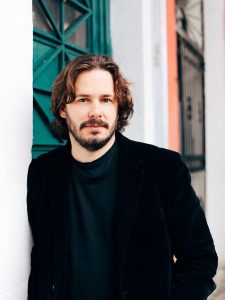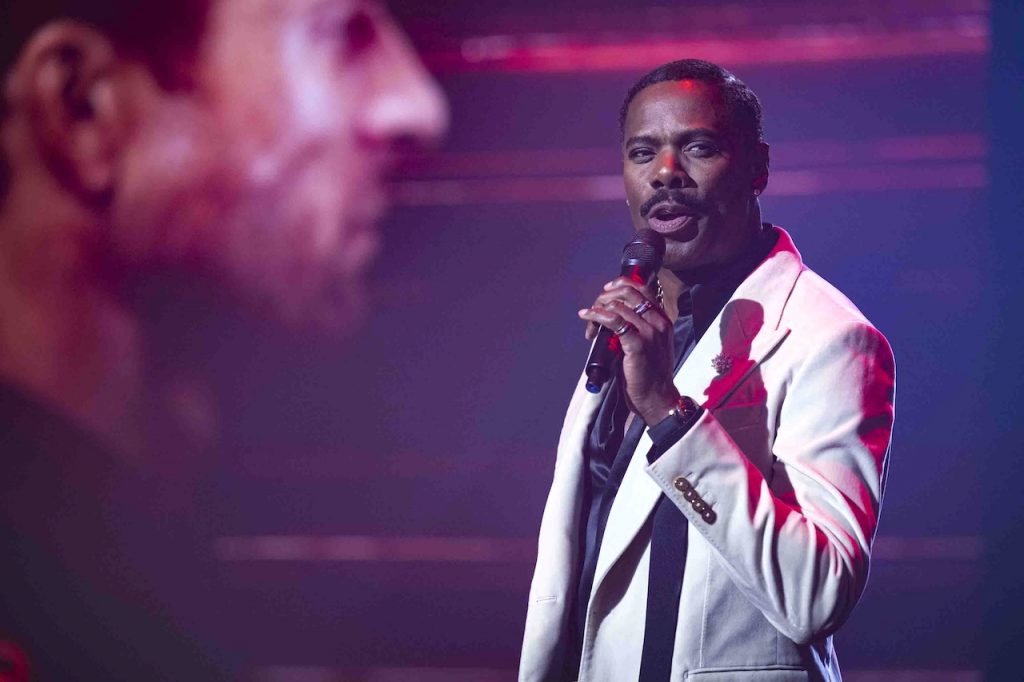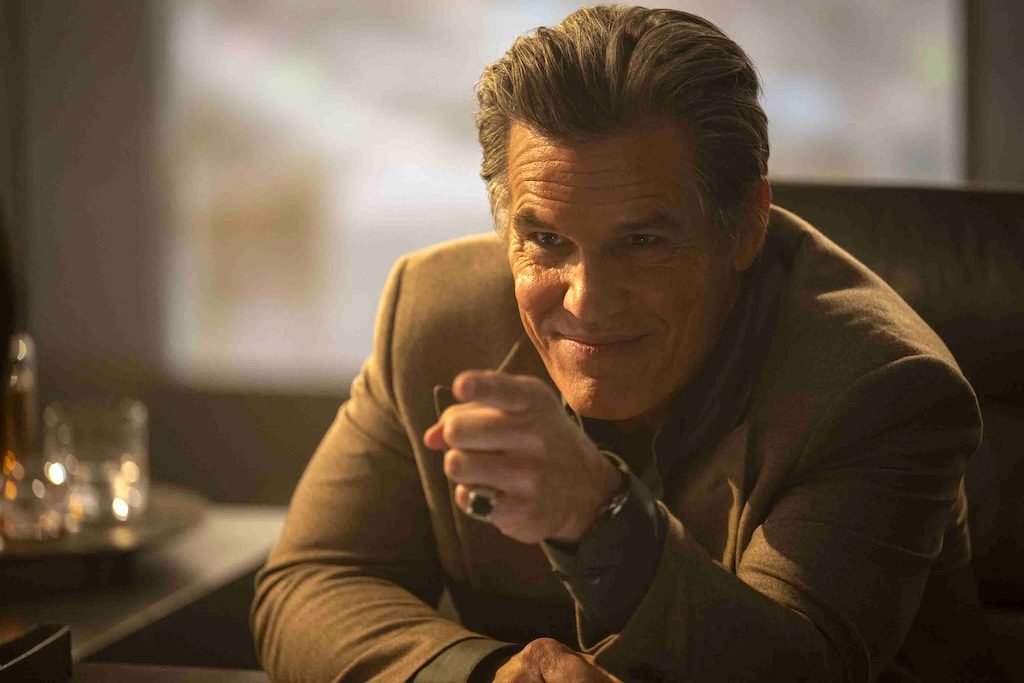“Turn It Off!” Edgar Wright and Michael Bacall on Adapting the Stephen King Classic ‘The Running Man’

In a recent interview with Creative Screenwriting Magazine, filmmakers Edgar Wright (Baby Driver, Last Night In Soho, Shaun of the Dead)) and Michael Bacall (21 Jump Street, Scott Pilgrim vs. the World) delve into the process of adapting The Running Man, the iconic dystopian novel by Stephen King, originally published in 1982 under the pseudonym Richard Bachman. Notably, it was set in 2025. It was later made into a film in 1987 starring Arnold Schwarzenegger. The remake stars Glen Powell, Emilia Clarke, Coleman Domingo and Josh Brolin.
The Network
The Running Man is a chilling portrayal of a dystopian, not-too-distant future (or current reality) in America. King envisioned an authoritarian world run by an all-powerful corporation called the Network, where wealth (or lack of it) ruthlessly divides the population into the haves and have nots. A permanent desperate underclass ripe for exploitation is plugged into nonstop, state-mandated Free-Vee, television programming featuring violent game shows where contestants risk their lives in humiliating and often dangerous stunts for cash. There is even a promise of more cash… lots of it.

Edgar Wright
The Machiavellian Network executive Dan Killian (Josh Brolin) cares for nothing more than maintaining the Network’s ratings by giving a hungry audience entertainment it wants. Bobby T (Coleman Domingo) is the carnival barker TV host, whipping the viewers into a frenzy.
The deadliest game of all is The Running Man. Three ‘runners’ (the Hunted) try to survive for 30 days as they are pursued by a highly trained death squad – the Hunters. They can win cash prizes of up to a billion dollars if they make the full 30 days. To date, no-one has won. Enter Ben Richards (Glen Powell), an angry construction worker who has run afoul of the Network and the show is his only opportunity for employment.
“The Network is an exaggeration of real-life companies that have lots of different businesses in everything from groceries to media,” explains Wright. “We’ve taken it a stage further. The Network is one all-powerful corporation that controls everything. They know your employment history, your medical history. Going up against the Network is a seemingly impossible task.”
Wright and Bacall’s conversation reveals both King’s and their reflections on society, violence, wealth inequality, media manipulation, intimidation, misinformation, and constant surveillance. Ben Richards represents the rise of the anti-corporate rebellion. His battle cry – Turn It Off! Without exploitative media, people are harder to manipulate.
Wright highlights the remarkable foresight contained within King’s novel. “Stephen King was clearly seeing patterns develop in society that would go on to bloom into a lot of what we have today in terms of income inequality and the manipulation of reality using technology,” he elaborates.
Bacall shares his own experience with the book. “I read the book when I was a teenager. I wasn’t aware at the time that it was published in 1982, but he’d actually written it nine years earlier in 1973,” he explains. “I was taken aback with his prescience in terms of his imagination and thinking about what’s going on backstage at a network.”
The conversation shifted toward the relationship of art imitating life and vice versa. Bacall notes, “When we started working on it, it was a gift to be able to look at the material with all the knowledge of what we know about media and particularly reality TV.” He articulated how the evolution of media over the last quarter-century, especially reality television, deeply informed their rendition of the novel.
Wright concurs. “You could actually draw from that this is the way that these shows are made, and the manipulation of the image, creating a false narrative about a member of the public who is in this competition,” he explains.

Bobby T (Colman Domingo) Photo courtesy of Paramount Pictures
Adapting From The Novel and the Film
The conversation shifted to how producer Simon Kinberg’s outreach inspired the project. Wright recounts the surprising way producer Kinberg approached him. “It is rare that this happens. I think it’s probably the only time it’s happened in my career,” he said, recalling how the correspondence unfolded. Kinberg’s inquiry was prompted by Wright’s long-standing enthusiasm for reimagining The Running Man. “Over the years, I’ve answered the question, ‘If you could remake any film, what would you remake?’ and I’d said The Running Man publicly, both on social media and in interviews,” Wright shares.
“The truth of it is, we don’t really think of it as a remake. We think of it as a new adaptation,” Wright affirms, stressing that they aimed to offer a distinctive take on the story that speaks to contemporary audiences while paying homage to the original material.
Wright characterizes it as a “double adaptation,” combining the original book with the 1987 film. “Our goal from the outset was to do a fresh adaptation of the novel,” Bacall reaffirms.

Michael Bacall
Bacall notes a significant distinction between the two versions. “I was very aware that they were two very different things.” Wright echoes this thought, adding, “As I became a director, it’s always been at the back of my mind that there was an entirely different film to be made from the source material.” The 1987 film was largely set in a single arena reminiscent of a Roman Colosseum which features these brutal games for spectacular entertainment. The current version spans multiple densely-populated cities, deserted byways, and rural backroads.
“Moving through different environments and meeting different people as he tries to survive becomes steadily more dangerous as Free-Vee watchers are turned against him by the Network’s incendiary propaganda and the rewards they offer for information on his whereabouts,” Wright continues.
“The challenge is wanting to please fans of the book and also make something that works as a studio sci-fi action film at the same time,” Bacall indicates. He further elaborates on the necessity of creating a film that would resonate with them as filmmakers, noting, “You have to make the film that you would want to be the biggest fan of.”
“When Edgar asked me to take a look at the book I was struck by the raw emotional intensity of the hero, Ben Richards,” Bacall recalls. “It jumped off the page.”
Much like the novel, the story is told through Ben’s point of view. “We embraced the book’s premise that the entire country is the arena and the public are participants in the game. Bringing the audience along for the journey makes them feel Ben’s righteous anger. We were both excited to dive in and see where that led,” Bacall explains.
Michael Bacall wrote many key scenes years before The Running Man was even greenlit. Many became part of the story after Edgar Wright boarded the project.

Dan Killian (Josh Brolin) Photo courtesy of Paramount Pictures
Becoming Ben Richards
The Running Man explores a lot of salient themes beyond mass media manipulation and their largely empty promises of potential massive wealth. It’s a study into the underdog – beaten down by a system rigged against them.
“This is about Ben’s journey to becoming a revolutionary. His journey of going from someone with understandably selfish concerns to somebody who’s understanding and caring about the larger world and what’s going on around him. I think the idea of the truth, and what is the truth, was really interesting thematically as technology has caught up to Stephen King’s imaginative portrayal of the fake self tapes,” Bacall muses.
“Ben’s not particularly trained. He’s flawed. He’s heroic. It really is a character based question in terms of how we layer this man so that people travel with him, and not too much of a cardboard cut out of other superhero characters. I think the key element is that he’s not a superhero. That’s very different from the previous adaptation, where he’s a sort of military policeman. But in this, he is an out of work dad desperate to serve his family,” Wright highlights.
Wright concludes: “The Running Man is a film about violence is entertainment. And also it is an entertaining film that is sometimes violent, I think there is a fun house mirror element to it, where you’re showing the audience back to themselves.”
[More: Edgar Wright & Krysty Wilson-Cairns on ‘Last Night in Soho’]
Join the Discussion!
Related Articles
Browse our Videos for Sale
[woocommerce_products_carousel_all_in_one template="compact.css" all_items="88" show_only="id" products="" ordering="random" categories="115" tags="" show_title="false" show_description="false" allow_shortcodes="false" show_price="false" show_category="false" show_tags="false" show_add_to_cart_button="false" show_more_button="false" show_more_items_button="false" show_featured_image="true" image_source="thumbnail" image_height="100" image_width="100" items_to_show_mobiles="3" items_to_show_tablets="6" items_to_show="6" slide_by="1" margin="0" loop="true" stop_on_hover="true" auto_play="true" auto_play_timeout="1200" auto_play_speed="1600" nav="false" nav_speed="800" dots="false" dots_speed="800" lazy_load="false" mouse_drag="true" mouse_wheel="true" touch_drag="true" easing="linear" auto_height="true"]










You must be logged in to post a comment Login